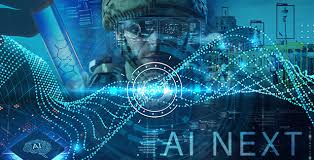AI-Powered Navigation: Revolutionizing the Way We Travel
In today’s fast-paced world, efficient and reliable navigation is more important than ever. With the integration of artificial intelligence (AI) into navigation systems, the way we travel has been transformed. AI-powered navigation offers numerous advantages that enhance our travel experiences, making journeys smoother and more efficient.
The Role of AI in Navigation
Artificial intelligence plays a crucial role in processing vast amounts of data to deliver accurate and timely navigation information. By analyzing real-time traffic patterns, weather conditions, and road closures, AI-powered systems can provide optimal routes that save both time and fuel.
Benefits of AI-Powered Navigation
- Real-Time Traffic Updates: One of the most significant benefits is the ability to receive real-time traffic updates. AI algorithms process live data feeds to alert drivers about congestion or accidents ahead, suggesting alternative routes to avoid delays.
- Enhanced Accuracy: Traditional GPS systems rely on static maps that may not reflect current road conditions. In contrast, AI-enhanced systems use dynamic mapping to offer precise directions based on up-to-the-minute information.
- Personalized Routes: AI can learn from users’ driving habits and preferences over time. It can suggest personalized routes tailored to individual needs, whether one prefers scenic drives or the fastest route possible.
- Sustainability: By optimizing routes for efficiency, AI-powered navigation helps reduce fuel consumption and emissions, contributing to a more sustainable environment.
The Future of Navigation
The future of navigation lies in further advancements in AI technology. As machine learning algorithms become more sophisticated, we can expect even greater improvements in predictive analytics and autonomous driving capabilities. Vehicles equipped with advanced sensors and AI will be able to make complex decisions autonomously, enhancing safety and convenience for all road users.
Challenges Ahead
Despite its many benefits, there are challenges associated with implementing AI-powered navigation systems. Ensuring data privacy and security is paramount as these systems rely heavily on user data. Additionally, integrating these technologies into existing infrastructure requires significant investment and collaboration between tech companies and government entities.
Conclusion
AI-powered navigation is undoubtedly revolutionizing how we approach travel. By offering smarter solutions that adapt to changing conditions in real-time, these systems improve not only efficiency but also safety on our roads. As technology continues to evolve rapidly, embracing AI-driven innovations will be key to shaping a future where travel is seamless for everyone.
Understanding AI in Navigation: Apps, GPS, and Google Maps Explained
- What navigation app is using AI?
- Is GPS powered by AI?
- Is Google Maps powered by AI?
- How is AI used in navigation?
What navigation app is using AI?
Many popular navigation apps are now leveraging AI to enhance their functionality and provide users with smarter, more efficient routing options. For instance, Google Maps utilizes AI to offer real-time traffic updates, predict the fastest routes based on current conditions, and even suggest alternative paths to avoid congestion. Similarly, Waze employs AI algorithms to analyze data from millions of users, allowing it to deliver dynamic routing suggestions and timely alerts about road hazards or delays. These apps continuously learn from user behavior and historical data to refine their predictions and improve overall user experience, making travel more seamless and efficient.
Is GPS powered by AI?
GPS itself is not inherently powered by AI; it is a satellite-based navigation system that provides location and time information to a GPS receiver anywhere on or near the Earth. However, AI can be integrated into GPS systems to enhance their functionality. When AI is incorporated, it processes real-time data such as traffic conditions, road closures, and weather updates to offer more accurate and efficient route planning. This combination of GPS technology with AI capabilities allows for smarter navigation solutions that can adapt to changing conditions and provide users with optimized routes tailored to their preferences and needs.
Is Google Maps powered by AI?
Yes, Google Maps is powered by artificial intelligence. AI plays a crucial role in enhancing the functionality and accuracy of Google Maps by processing vast amounts of data in real-time. It helps analyze traffic patterns, predict travel times, and suggest the most efficient routes. Additionally, AI enables features such as personalized recommendations based on user preferences and habits. Machine learning algorithms are employed to improve the accuracy of location data and provide real-time updates on traffic conditions, road closures, and alternative routes. This integration of AI technology ensures that users receive reliable and up-to-date navigation assistance.
How is AI used in navigation?
AI is used in navigation by leveraging advanced algorithms and machine learning to process vast amounts of data in real-time. This includes analyzing current traffic conditions, weather patterns, and road closures to provide the most efficient routes. AI systems can predict potential delays and suggest alternative paths, ensuring a smoother travel experience. Additionally, AI learns from user behavior to offer personalized route recommendations based on individual preferences and driving habits. By continuously updating maps and integrating live data feeds, AI-powered navigation enhances accuracy and reliability, making it an indispensable tool for modern travelers.



